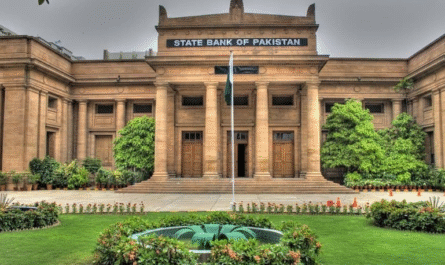Amid a swirl of misunderstanding and misinformation, Pakistan’s Federal Board of Revenue (FBR) has officially denied that a 20.5% tax is levied on cash transactions exceeding Rs. 200,000. Instead, it’s a restriction on claiming business expenses—not an added tax—meant to steer large transactions into formal banking channels.
🔍 What the Confusion Is About
Recent headlines claimed that FBR introduced a 20.5% tax (essentially meaning only 79.5% of a transaction is “recognized”) on cash dealings above Rs. 200,000. The real rule, passed under the Finance Act 2025 and effective July 1, 2025, pertains to expense disallowance:
- Under Section 21(s) of the Income Tax Ordinance, any business expense linked to a single cash payment over Rs. 200,000—or any non-banking method—will see 50% of that expense disallowed when calculating taxable income.
This means if a business pays Rs. 250,000 in cash for an invoice and claims Rs. 40,000 in expenses, Rs. 20,000 of those expenses become non-deductible—resulting in effectively higher taxable income. Some media interpreted the 50% disallowance as an outright 20.5% “tax,” but FBR has stressed this is inaccurate .
FBR Denies Slapping 20.5% Tax on Cash Transactions of Rs. 200,000.
🧭 Why It’s Not a New Tax
- 🚫 Not a surcharge or levy. It’s a limitation on what can be deducted—not an additional tax rate.
- 🎯 Targets transparency. The rule is aimed at discouraging large undocumented cash transactions and pushing businesses toward banking or digital payments—part of FBR’s long-term drive toward a cashless economy.
- 🗓 Parliamentary approval. The measure was passed in Parliament and can only be amended when the next Finance Bill (2026–27) is introduced.
🌐 Industry, Expert & Public Reaction
- Business community: Concerned this rule unfairly penalizes sectors where cash remains dominant. Senator Mohsin Aziz labeled it anti‑business, while Senator Sherry Rehman described it as “draconian”.
- Tax experts: Note the rule is ambiguous—businesses must determine which expenses are “directly attributable.” Smaller firms and AOPs without mandatory audits may find compliance tricky.
- Public sentiment: Social media echoes both frustration and support. Some believe it’s a welcome measure to reduce the “unrecorded economy,” while others question whether FBR can implement and enforce it effectively.
💡 Practical Example
- Below Rs. 200,000
Cash sale of Rs. 199,999 → full expense deduction permitted. - Above Rs. 200,000
Cash sale of Rs. 200,001 with Rs. 30,000 claimed expense → Rs. 15,000 disallowed; only Rs. 15,000 deductible.
✅ Bottom Line
- There is no new 20.5% tax on cash transactions over Rs. 200,000.
- It’s a documentation measure: disallowing 50% of linked business expenses to push the use of banking or digital methods.
- The rule took effect July 1, 2025, and can only be altered with the next Finance Bill (2026–27).
- Stakeholders are urged to track any interpretive guidelines released by FBR, and businesses should review their invoicing, especially for high-value transactions.
📌 Tips for Businesses
- Shift to banking/digital channels for significant transactions to secure full expense deductions.
- Documentation is key—maintain clear trails linking expenses to specific invoices.
- Plan ahead for financial year 2026–27 in case amendments are introduced in the next Finance Bill.



